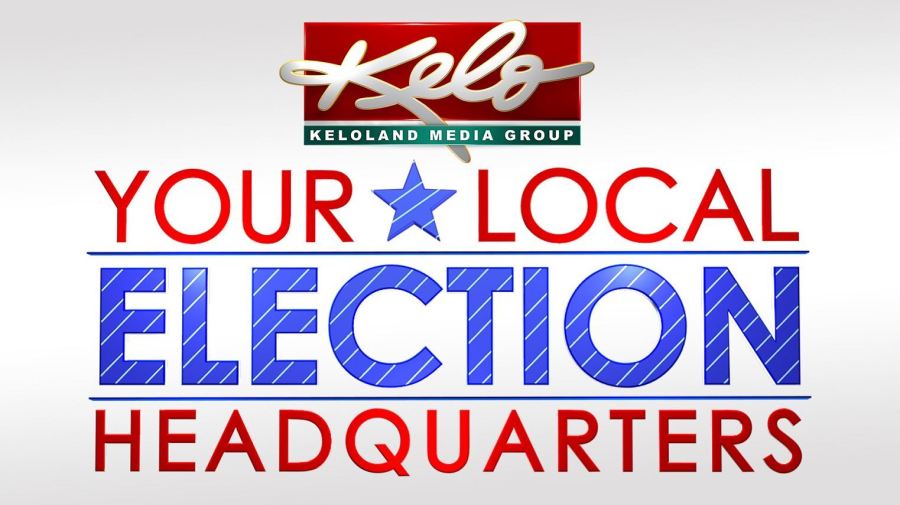SIOUX FALLS, S.D. (KELO) — Whether Initiated Measure 28 cuts the sales tax on only grocery items or all items for human consumption, both supporter Rick Weiland and opponent Republican Rep. Tony Venhuizen agreed the South Dakota Legislature will have to deal with it.
That was one of the few agreements both Weiland and Venhuizen had during a discussion about the ballot measure South Dakota voters will decide during the Nov. 5 General Election. Both Weiland and Venhuizen joined KELOLAND’s Tom Hanson for ballot measure special edition of Inside KELOLAND. You can watch the discussion the videos attached above.
The full episode of Inside KELOLAND will air at 10:30 p.m. Sunday night.
IM 28 calls for the removal on the state sales tax on items for human consumption, which includes groceries.
Venhuizen said nurses, labor unions, schools and others have united to oppose IM 28 because the state will need to cut its budget if IM 28 passes. He said IM 28 is poorly written because it doesn’t include a plan to make-up the lost sales tax revenue.
“When Governor Noem proposed the sales tax cut for food, she had a plan to pay for it,” Venhuizen said. “The sponsors this year do not.”
Weiland said IM 28 could not include a plan to make up the revenue that could potentially be lost if IM 28 passes because state law says ballot measures must have only one subject. The Legislature must respond if IM 28 passes, Weiland said.
“If I were in the Legislature, I’d figure it out,” Weiland said, adding a sunset clause on the overall state sales tax rate of 4.2% will expire and add more than $100 million when it returns to 4.5%.
Weiland said there’s $1.4 billion in sales tax exemptions already included in state laws. He said he agreed with Gov. Noem that now is the right time for South Dakota to remove the “regressive tax” on groceries.
“If there’s a will, there’s a way,” Weiland said.
To Venhuizen, “figuring it out” means across the board tax cuts. There isn’t a sum of about $150 million that is just waiting to be cut, Venhuizen said. He said the state could see 7% across the board cuts to education, healthcare providers and state employees if tobacco was included as part of items for consumption.
“The tax doesn’t sunset for another two years,” Venhuizen said, referring to the state’s overall sales tax rate. “Even when it does, it’s not enough to cover this.
Items for consumption vs. groceries
Supporters say IM 28 intends to remove the state sales tax on groceries. Opponents say IM 28 could remove the tax on tobacco and even toilet paper and aspirin because those are considered items for human consumption.
An opinion note on the IM 28 ballot from the South Dakota Attorney General said “Human consumption is not defined by state law. However, its common definition includes more than foods and drinks.”
As the measure appears on voter’s ballots a line says “Judicial or legislative clarification of the measure will be necessary.”
Both disagreed on the amount of taxes that could be cut, mostly because they disagreed on how IM 28 would be interpreted in the court or the Legislature.
“It’s going to end up in court,” Venhuizen said.
IM 28 could cost at least a state-agency estimated $133 million in state revenue and another $65 million if tobacco is included with it, Venhuizen said.
When asked why the language of the ballot measure says items for human consumption instead of groceries, Weiland said that came on advice from the South Dakota Legislative Research Council (LRC).
“We had eating and drinking on our first draft and they said that was too vague,” Weiland said. “They suggested consumption.”
Weiland believes IM 28 would be interpreted for its intent, which is to remove the state sales tax on groceries.
Venhuizen said even if the legislative intent only applies to food, the budget hit is still over $130 million, according to the most recent LRC fiscal note. Venhuizen also said the state law definition of tobacco products includes the phrase “items for human consumption.”
The Fiscal Note that will appear on voters’ ballots says the impact of the measure would cost $123.9 million and it excludes removing taxes on alcoholic beverages and prepared food.
State taxes vs. municipal taxes
All the state-related documents, the AG statement, the LRC fiscal note and the petition language included with IM 28 had specific language saying “Municipalities could continue to tax anything sold for human consumption.”
Weiland stressed there’s been too many hypotheticals being attached to the debate on IM 28. He said the interpretation would be that when ballot measure is passed by the public supersedes other laws.
“There’s so much fear out there and not enough facts,” Weiland said. “It’s just a little bit of a bridge too far.”
But Venhuizen said another state law says municipalities cannot have a tax that collects taxes if the state can’t collect too.
“That’s a big open question,” Venhuizen said. “There are cities right now trying to adopt city budgets that don’t know what to do because they’re not sure if this tax is going to be adoptable or not.”
Weiland said he’s not sure why so many groups are against IM 28. He encouraged voters to look at the language used on the ballots to decide when voting on IM 28.


